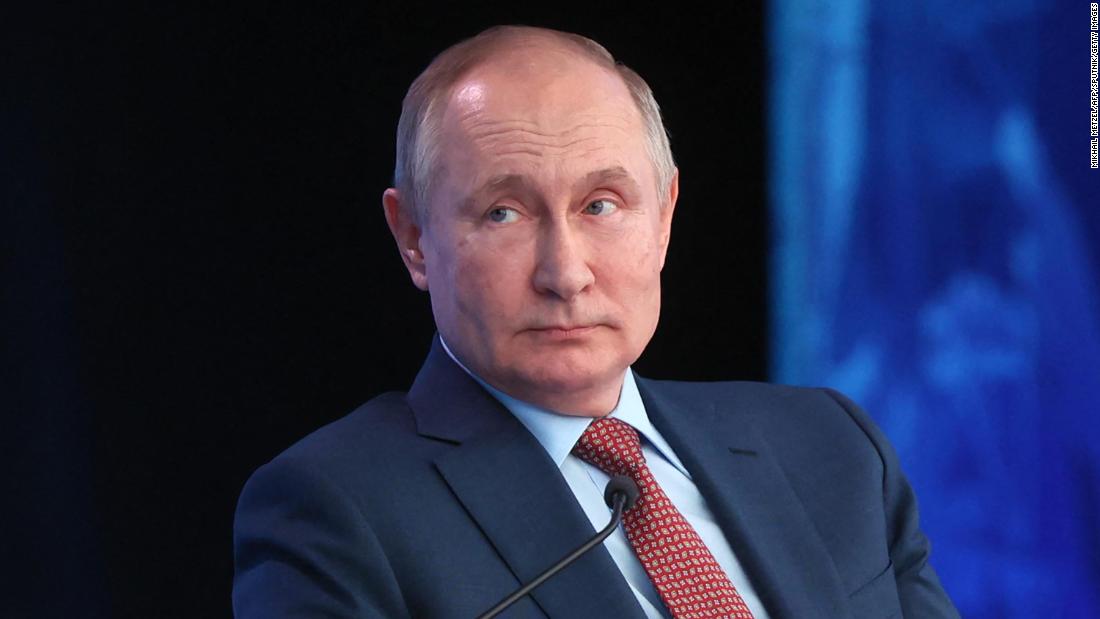Without a breakthrough, a senior US official
declared ominously that the "drumbeat of war is sounding loud," as both sides made pessimistic statements.
This is hardly a surprising outcome.
With
more than 100,000 Russian troops massed on Ukraine's borders, the US and its allies refused to make any concessions. That may be exactly what Putin expected when he made patently
unreasonable demands of the West, in exchange for not attacking a neighbor yet again.
But, in the end, this may not turn out the way the Russian President hopes.
Before the meetings started, it looked like Putin had the West (and Ukraine) in a bind. He argued NATO must agree to Russia's demands, including a vow not to add new members and a retreat of NATO forces to their positions dating back to 1997 -- a set of commitments NATO said from the outset it wouldn't consider. It seemed easy to imagine that Putin could turn to the Russian people and say, 'Look, I tried diplomacy, but the West rejected it. We have no choice but to invade Ukraine.'
The ruse may look on paper like a win-win for Putin. Perhaps the Russian people believe Putin's
manufactured claims that Ukraine poses a danger against the much larger and better-armed forces. But, in the longer run, this maneuver could well backfire.
Russia's menacing stance toward Ukraine, its
continuing threats even as the talks proceeded, are solidifying the Kremlin's image as that of a bully endangering its neighbors. The more Putin threatens, the more he unwittingly makes evident why Russia's neighbors believe they need to join NATO to protect themselves.
Ukraine, of course, poses no serious military threat to
Russia. It used to have the world's third largest nuclear arsenal, but it
transferred it to Russia in exchange for a commitment to respect its borders and sovereignty, a commitment Russia violated when it invaded and annexed Ukraine's Crimean Peninsula. That pact, known as the Budapest Agreement, is just one of several Russia has signed and brazenly violated.
The only threat Ukraine poses to Putin -- not to Russia -- is becoming a functioning democracy at a time when the Russian leader is seeking to cement his place as an unremovable autocrat, and now one
committed to defending other autocrats.
By creating
self-fulfilling prophecies about a looming confrontation, Putin may just be strengthening the NATO alliance which, by the way, was
not likely to admit Ukraine anytime soon.
The message to Moscow was clear. Thirty NATO allies, according to US Deputy Secretary of State Wendy Sherman, speaking separately but in "
complete unity," reaffirmed to Russian officials that every country
has a right to choose its own alliances, that borders cannot be changed by force.
Perhaps this came as no surprise to Putin. But he may have been taken aback when countries that don't belong to NATO -- namely
Sweden and
Finland -- started talking about joining, directly as a result of his military threat to Ukraine. Finnish President Sauli Niinisto, in his New Year's speech to the nation, spoke of "the possibility of military alignment and of applying for NATO membership." In response, Russia's not-so-diplomatic foreign ministry
threatened "serious military and political consequences" against Finland.
Nobody knows whether Putin plans to invade. But the 100,000 troops arrayed on Ukraine's borders are poised to act. If what Putin wanted was attention, he got that. If he wanted to distract his population from domestic problems, he got that for a time. But he will have to make a decision soon. When the winter ice melts, the muddy roads would make an invasion more difficult. And waiting is expensive.
Not as expensive, however, as a real invasion.
As he claims that Ukraine and NATO pose a threat to Russia, Putin is sparking patriotic sentiments at home. But he is also igniting Ukrainians' commitment
to defend their country. Ukrainians are under no illusion that they can hold back the Russian military, but sustaining an invasion could prove enormously costly. It's not just Ukrainians who would pay the price.
The Biden administration
is considering a host of crippling economic sanctions. That could help shift Putin's cost-benefit analysis. And Ukrainians,
receiving support from the United States to defend themselves, could make an invasion excruciating, which Washington is making sure Putin understands.
Gen. Mark Milley, the top US military official,
spoke to his Russian counterpart a few weeks ago. He reportedly pointed out that an invasion would be followed by a campaign of resistance similar to the one that drove the Soviets out of Afghanistan and demoralized the slumping superpower.
Ukraine's former president, Petro Poroshenko, told an interviewer that every Ukrainian town, every home, will become a fortress, making sure that "
thousands of coffins" are sent back to Russia.
Throughout the talks this week, Russian diplomats tweeted undiplomatic messages seeking to intimidate, or perhaps to rile up the folks at home. At one point, Russian Foreign Minister Sergei Lavrov made a
grotesque claim about the former Eastern European countries that were turned into Soviet satellites by invading USSR armies -- a reminder to newer NATO members of the old Kremlin's boot on their throat during the Cold War.
Whatever happened this week as scores of diplomats gathered in Europe, the ultimate decision will be made by one man in Moscow. Putin may choose to invade, and he may succeed in lopping off another slice of a country whose sovereignty Russia had vowed to once respect. In the process, however, he has sent a message to the entire world about the direction in which he is taking his country.
While nations voluntarily seek to join the alliances led by democratic countries, Russia -- once expected to become a peaceful member of the family of nations -- is now an autocratic power, repressing its own people's calls for democracy, defending autocrats across the region and engaging in crass intimidation and forcible conquest.

No comments:
Post a Comment